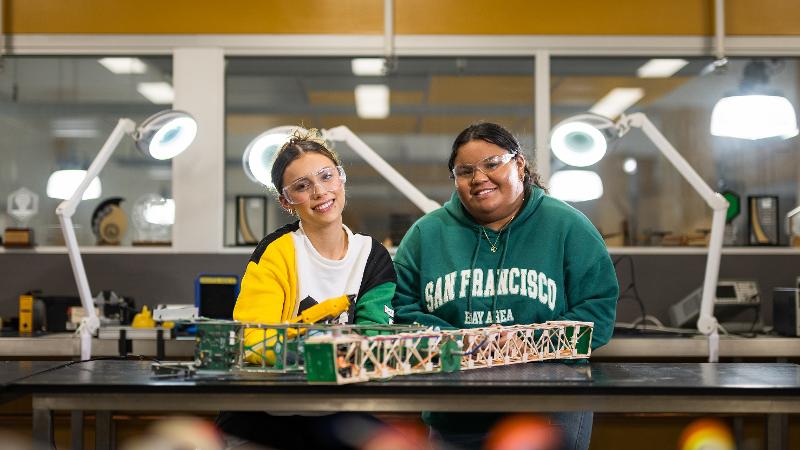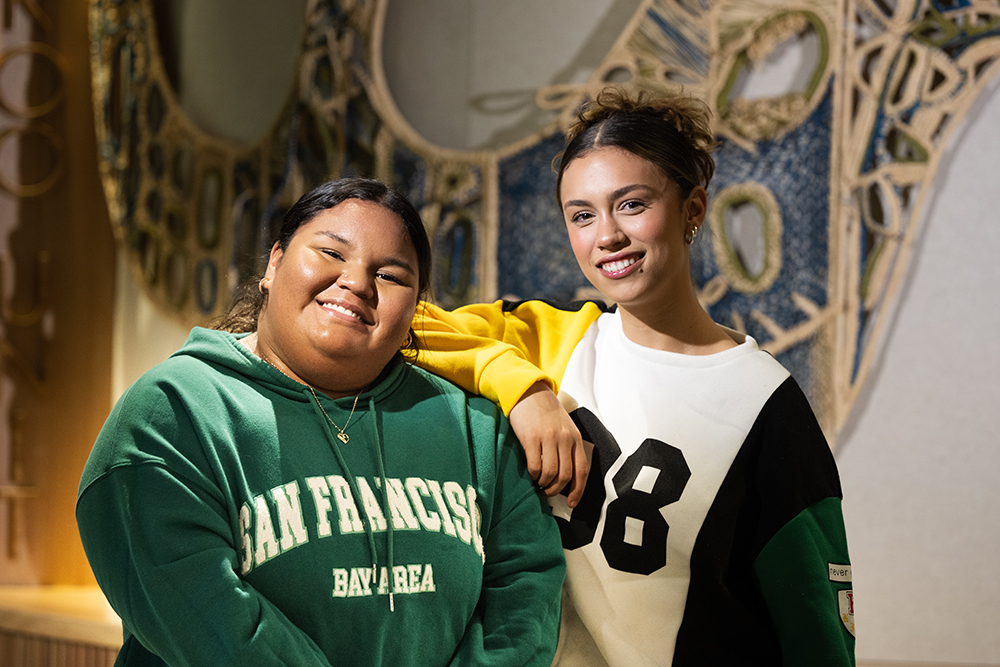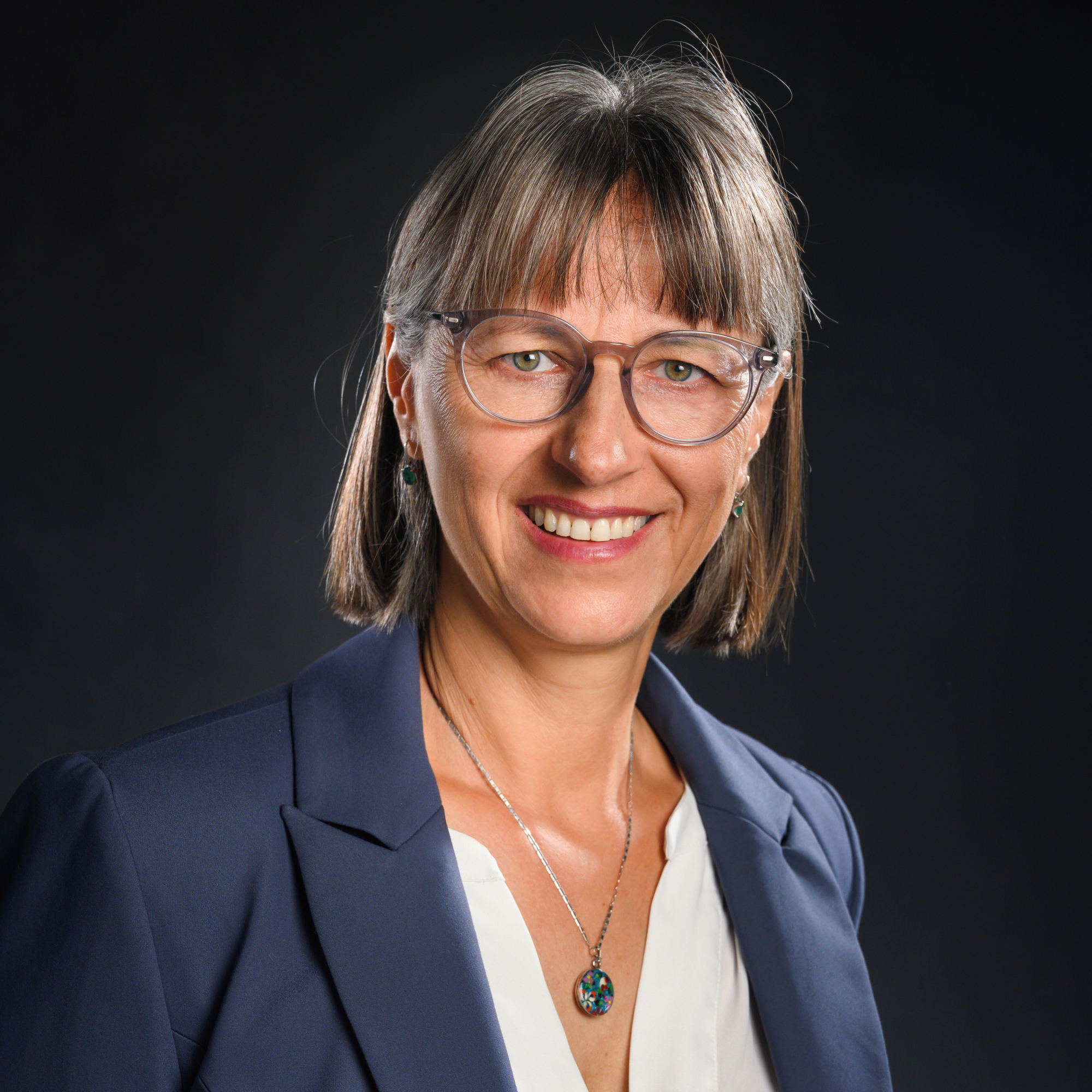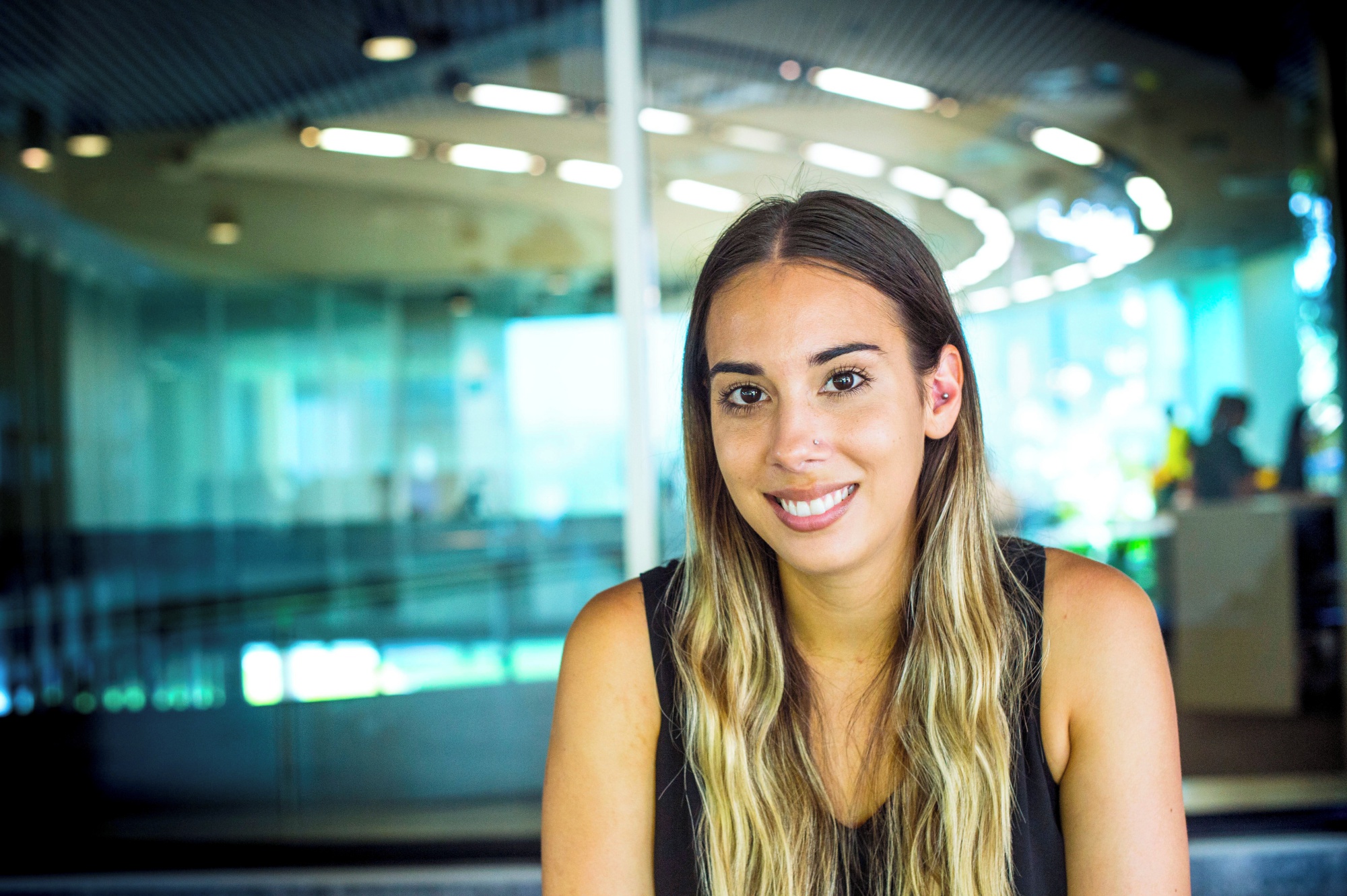
Indigenous Australian students Kiah Faiva and Montanna Homosi are on their way to building dream careers in engineering and want to see other women follow their passion for the field.
Kiah, a second-year civil engineering student at QUT, said she was enjoying her studies and already working with global infrastructure consulting firm AECOM in the Civil Infrastructure Team during university breaks.
“I’ve already had the opportunity to get a job in the engineering industry through Career Trackers, and it’s really helpful with uni because we work on real examples: it’s fun and challenging,” Kiah said.
“I originally wanted to do architecture because I like designing. But then in Year 10 I talked to an engineer and they told me what they do and how it works and I realised what I wanted to do was actually engineering.”
Kiah is a Kalkadoon woman who grew up on Gubbi Gubbi country, while first-year student Montanna is a Ankamuthi and Bulgoone Wara woman from far north Queensland.
Montanna said she followed her interests in her choice of university study.
“I don’t really categorise things as a male job or a female job – I just do what I like,” she said.
“I’ve always liked math and science since I was young, and I like getting the right answer: with maths and science you’re either right or wrong. It’s very logical.
“My dad has been encouraging. He works in the mines as a diesel fitter, and when I told him engineering was something I wanted to do, he said it was good for Indigenous women to go into those fields so we could bring a new perspective.
“I noticed when I moved from Weipa that having grown up in a different environment has helped me see things differently.”
Kiah said having more diverse engineers graduating would benefit the industry.
“It would be nice to have more females, especially more Indigenous females,” she said.
“A lot of people don’t think about Indigenous perspectives and why certain lands, infrastructure and personal aspects are important to communities: it’s more to do with the money and design aspects.
“Having more Indigenous engineers in the industry will help teach people about the culture and why certain actions can be disrespectful to Aboriginal and Torres Strait Islander people.”

Kiah said students were keen to learn from her about Indigenous Australian perspectives.
“It amazes me how many people still don’t know or understand the culture. But people I have spoken to at uni and outside are curious and willing to listen and learn about the amazing culture," she said.
"I help to educate on the right terminology, the different totems and what they mean, what art means, what the land means and why it’s important to respect certain things."
Montanna said she had built good networks at QUT.
“It’s been really good connecting with other women in engineering as we have a ‘we’re in this together mindset’ – it’s challenging sometimes walking into a room seeing 50 guys and maybe four or five girls,” she said.
Montanna said she appreciated the Oodgeroo Unit (the QUT Aboriginal and Torres Strait Islander student support centre), which had helped her to face the changes in her life when she started university.
“I went from Weipa, where there’s only a bakery and a Woollies and no stop lights, to here, where there’s four lanes in the road. It was very nerve wracking going from the small town to the big city,” she said.

The Executive Dean of Engineering, Professor Ana Deletic, said QUT was working hard to create a pipeline for more women and students from diverse backgrounds to become engineers.
“Engineering companies want teams of both men and women, from diverse backgrounds, so that they are developing products and solutions that serve everyone in their community,” she said.
Professor Deletic said Indigenous Australian engineers’ knowledge of Country provided an advantage as the world looked for more sustainable solutions.
“That connection to Country is unique and makes a huge difference in some engineering disciplines,” she said.
“As the world adapts to the threat of climate change, we are searching for ways to connect better with nature so we can build functional, sustainable cities, and understanding Country can help with this.”
Professor Deletic said programs such as the ASPIRE partnership with south-east Queensland high school Mabel Park was creating pathways for promising Indigenous Australian students to study engineering.
“We pair Year 9 and Year 10 students with academic mentors to work on real-world STEM research projects once a fortnight for a semester: we want to connect them with a world they might have thought was out of their reach, and then once they graduate we support them to come to university,” she said.
QUT Bachelor of Engineering graduate and Aboriginal woman Taylah Griffin wants to see more Indigenous Australians studying her discipline.
Ms Griffin is a Gangalu woman who grew up in what is now called Gordonvale in Far North Queensland and was Queensland’s second First Nations engineering graduate, graduating from QUT in 2018 with a Bachelor of Engineering (Honours), majoring in electrical and aerospace engineering.

“STEM is a place for everyone, especially young Indigenous Australians,” she said.
“We were the first scientists, engineers, astronomers; STEM is in our blood. I love my career in STEM, and I can't wait for other young mob to love it too!”
QUT offers a Women in Engineering scholarship, as well as a range of scholarships for Indigenous Australian students, including the CS Energy Scholarship, the Arcadia Landscape Architecture Indigenous Scholarship, the Go Further Indigenous Tertiary Scholarship and the Oodgeroo Noonuccal Undergraduate Scholarship.
People can learn more about studying engineering at QUT – and all our other courses – at the QUT Open Day on July 30 at the Gardens Point and Kelvin Grove campuses in Brisbane.
International Women in Engineering Day is celebrated on 23 June.
Media contact:
Sally Dillon, QUT Media, 07 3138 8666, s.dillon@qut.edu.au
After hours: media@qut.edu.au



